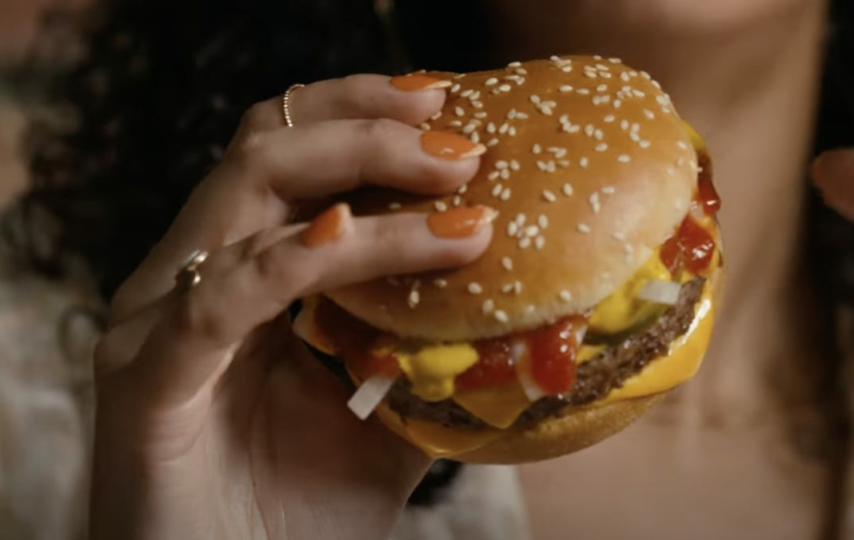[ad_1]
Not good for you? (A screenshot from a McDonald’s ad) A screenshot from a McDonald’s ad
You’ve changed, so businesses have tried to change too.
They adjusted to your new ways during the pandemic. They’re still trying to adjust to the different ways you’re behaving as the pandemic becomes one of life’s constant presences.
It doesn’t always go so smoothly.
The fast food business is fascinating in so many ways, but the sudden preference for drive thru and delivery over actually eating in a Burger King or McDonald’s has caused fast food companies considerable heartburn.
Just as McDonald’s and friends were experimenting with robot ordering at the drive thru, so those very drive thrus were becoming clogged like ailing hearts.
Not so long ago, I mentioned a Chick-fil-A in Santa Barbara, California. It had become so popular that the local council was ready to declare it a public nuisance. No, not because fried chicken is bad for you, but because it was causing enormous traffic jams on the city’s State Street.
There seemed no way for any technology to fix it. Even though I suggested that a few alerts via Waze and Google Maps could have helped. Sample: “You really want Chick-fil-A? Well, it’s going to take you another 67 minutes to get it. Do you really need it?”
Instead, Chick-fil-A chose curiously analog solutions, such as signs discouraging cars at the drive thru from reversing back into the street, security guards to enforce what the signs were saying, upgrading the kitchens and even, oh yes, communicating with customers about the problem.
Astonishingly, this actually worked, as Chick-fil-A and the local council have concluded that the traffic issue had largely dissipated. So no more threats of a public nuisance order.
Perhaps, then, Chick-fil-A might have some hints for its fellow fast fooders at McDonald’s.
A particular McDonald’s, that is. This one is in the Cremorne suburb of Sydney, Australia. Its drive thru has become very popular too, during and after the pandemic.
Naturally, McDonald’s thought it an idea to build a second drive thru lane. Naturally, there was local opposition.
No, not because Big Macs aren’t good for you. Wait, yes, because Big Macs aren’t good for you.
McDonald’s insisted there would be no deleterious effect on traffic. Local functionaries from the Northern Sydney Local Health District tried to drive through that argument. They claimed there hadn’t been sufficient analysis of the potential problems.
They did, though, have another, far more emotive objection. They insisted the local population was already overly large and could live without another McDonald’s drive thru lane.
As Australia’s news.com reported, the health department offered: “There is also a concern that increasing accessibility to fast food, via an expanded drive thru, may negatively influence the eating habits of children and adults, and undermine existing population health strategies to tackle obesity.”
Some may worry that a single additional drive thru lane may not have too much influence on obesity levels. The craving for fast food encompasses a vast range of elements, such as speed, cost, convenience, and the fact that some of it does actually taste good.
There are plenty of options.
You may feel, indeed, that the local health authority just really, really doesn’t want this additional lane.
It insisted that a community health center opposite the Cremorne McDonald’s might suffer from fewer local parking spots, as the new drive thru lane would reduce the number of spots at the McDonald’s.
So now the burger chain has something of a problem. Will it do what Chick-fil-A did and work with the local authorities?
Or will it find some other, more dastardly way of getting its new drive thru lane built?
I’m sure McDonald’s has already performed due and fast diligence. It seems, for example, that obesity rates in Cremorne stood at a (relatively) mere 19% in 2020, as compared to the average in the state suburbs of 33%.
But these things can be complex. What happened in 2021, when everyone was going to the drive thru?
I fear this could be a long affair.
Amazon Prime Day 2022: Early Deals
[ad_2]








